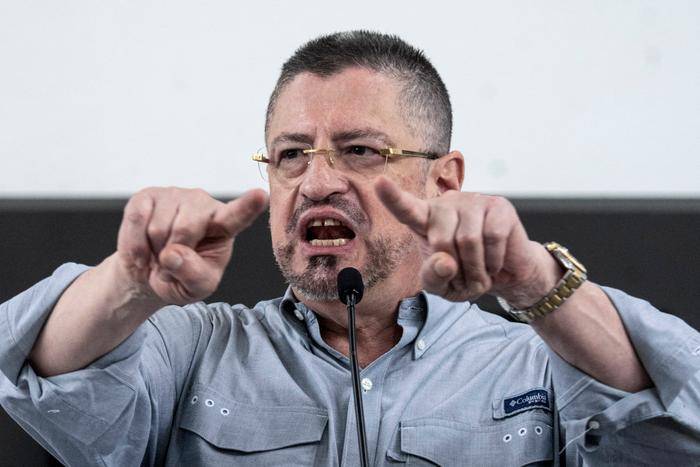Costa Rica's President Rodrigo Chaves Clashes with Critical Media Outlets
Costa Rica's President Rodrigo Chaves has been making headlines lately for his contentious relationship with the press and his intolerance for criticism. Chaves, who took office in May 2022, has been accused of employing populist rhetoric to undermine the credibility of the independent press ¹.
According to critics, Chaves views the press as a "permanent enemy" and has been using his platform to discredit and intimidate journalists who dare to criticize his administration ¹. This has led to concerns about the erosion of press freedom and the potential for censorship in Costa Rica.
One notable incident that sparked outrage was when Chaves ordered his officials to "discipline" journalists who were critical of his government ². While Chaves downplayed the incident, saying it was not about censorship but about "extreme discipline," many saw it as a clear attempt to muzzle the press.
Chaves' administration has also been criticized for its lack of transparency and accountability. With a low electoral participation rate of just 28.7%, Chaves' government has been accused of not representing the interests of the broader population ³.
The president's relationship with the press has been further strained by his use of social media to attack and discredit journalists. Chaves has been known to use Twitter to launch personal attacks on journalists who criticize him, which has led to concerns about the safety and well-being of journalists in Costa Rica.
The situation has sparked concerns about the future of press freedom in Costa Rica. Journalists and media outlets are facing increasing pressure and intimidation from the government, which is making it difficult for them to do their job.
- _Censorship_: Chaves' order to "discipline" journalists has raised concerns about censorship and the potential for the government to silence critical voices.
- _Intimidation_: Journalists are facing increasing intimidation and harassment from government officials and supporters, which is making it difficult for them to work freely.
- _Lack of Transparency_: Chaves' administration has been criticized for its lack of transparency and accountability, which is making it difficult for journalists to hold the government to account.
The situation has also sparked concerns internationally, with many organizations and governments expressing concern about the erosion of press freedom in Costa Rica.
- _UN Concerns_: The United Nations has expressed concern about the situation, with the UN High Commissioner for Human Rights calling on the Costa Rican government to respect press freedom.
- _International Journalists' Organizations_: International journalists' organizations, such as the Committee to Protect Journalists, have also expressed concern about the situation and called on the Costa Rican government to respect press freedom.
In conclusion, the situation in Costa Rica is a cause for concern, with press freedom under threat from the Chaves administration. It is essential that the international community continues to monitor the situation and calls on the Costa Rican government to respect press freedom and allow journalists to work freely without fear of intimidation or censorship.




No comments yet
Be the first to share your thoughts!